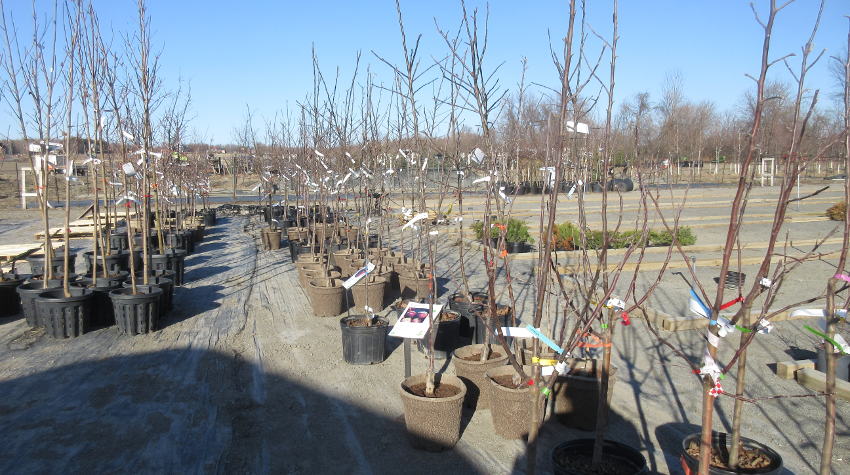Nobody really enjoys to spray plants for insects or diseases. But if there is one and only one spray to apply in a year, it's a dormant spray. How and when and what does it do?
So what is dormant spraying? Dormant spraying is the process of applying a preventative spray early in the spring while the plant is still dormant. A plant's dormancy is simply the rest period it takes in the winter. A plant "beaks" dormancy in the spring when the buds swell up and then leaves start to emerge. Dormant spraying should not be done once the buds have broken on a plant.
Dormant spray is typically comprised of two ingredients that can be applied together or separately. One is Horticultural Oil and the other is Lime Sulphur. Horticultural Oil is used to prevent insects. Essentially, the oil smothers overwintering insects and/or their eggs. Lime Sulphur is natural fungicide and it kills dormant fungus spores on the plant. All in all, it tries to get rid of garden problems before they start.
Unfortunately, the conditions around applying the dormant spray are a little more complex and hard to time. Frost causes a large problem when applying any liquid based sprays. Since the oil part of the spray needs time to smother insects or their eggs, night time cold will break down the oil before it has a chance to be effective. It is important that there is 24 hours of above freezing temperatures. Watching the weather religiously is required to get your timing just right. If the forecast was incorrect and it does freeze before the 24-hour mark, the oil portion of the spray may need a second application. If it happens to freeze after the 24-hour period, there's no harm done.
When applying dormant sprays,it's important to remember that it is a very messy job. Suit up in a complete rain-suit or cover yourself in garbage bags. When applying the spray, it should be to the point the plant is dripping so you will probably get some on you. Sulphur is also a rather smelly substance and the oil makes it stick quite well so make sure you're prepared. It can also be beneficial to spray the ground or flower beds around your plants with any leftover spray from your tank. This kills those occasional other critters that hide in the soil or on the mulch around your garden.
Last but not least, what plants should it be applied on? Typically fruit plants or anything in the rose family should be sprayed. Apples, cherries, roses, plums, pears, and even raspberries are actually members of the rose family and benefit from dormant spraying. Quite a few other plants can also benefit from the spraying, but be sure to read the directions carefully. Maples and evergreens do not like and sometimes cannot tolerate dormant spraying.
As with all sprays, be sure to take safety precautions. Always wear gloves when handling any sort of insecticide or fungicide. It is also best to wear eye protection. Although horticultural oil and lime sulphur is considered organic, it should not be treated differently than any product that is used to kill insects or fungus.

